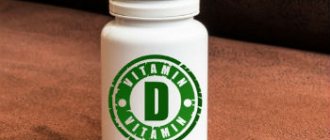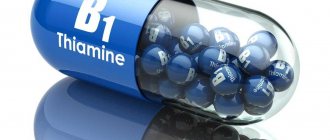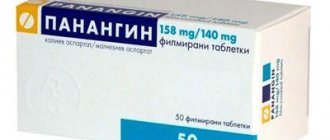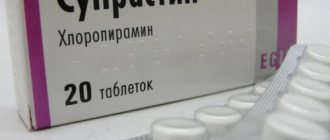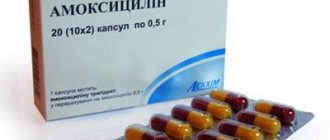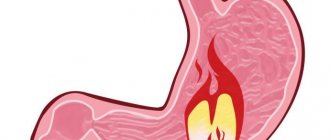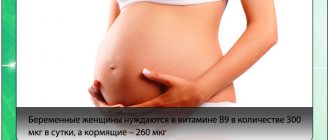Vitamin E or tocopherol belongs to the group of fat-soluble vitamins and is not synthesized in the human body. Therefore, it is a necessary nutritional element. Contained in the following products: vegetable oils, cereal sprouts, legumes, meat, liver, peas, milk, eggs. May be prescribed as a medicine in the following cases:
- Liver diseases.
- Heart disease (with a decrease in the supply of necessary substances to the myocardium).
- Excessive fragility of blood vessels.
- During pregnancy (to reduce the risk of miscarriage and normal development of fetal organs and tissues).
- Impotence.
- Skin diseases - psoriasis, dermatoses.
- Gait disturbance.
The daily norm for a healthy person is about sixteen grams (14-16). Women are slightly higher than men. If you take a synthetic substance in excess, poisoning or an overdose of vitamin E can occur.
What is vitamin E?
Its medical name is tocopherol. The microelement belongs to the group of fat-soluble compounds. Its peculiarity is that the body cannot produce vitamin E on its own. To replenish the supply of useful substances, you need to eat the “right” food, as well as take special vitamin complexes.
The functions of vitamin E in the human body cannot be performed by most other substances:
- increases the activity of vitamin A, promoting its complete absorption;
- “works” as an antioxidant, reducing the risk of cancer;
- takes part in the production of many proteins, as well as hormones;
- promotes the formation of the placenta;
- maintains healthy cell structure.
A lack of vitamin leads to unpleasant consequences, although an overdose of a microelement will bring little pleasure.
Products containing vitamin
It is possible to fill the deficiency with the help of a synthetic product. But the element is present in certain products. Consumption of such products together with capsules leads to an excess of the substance in the body.
Connection present:
- In deodorized vegetable oil obtained from sunflower, peanuts and sea buckthorn;
- In sprouted wheat sprouts;
- In legumes – there is a lot of vitamin in beans and peas;
- High protein animal products - eggs, milk and meat.
It is necessary to take into account the use of the listed products if taking a synthetic product is indicated.
Indications for use
It is difficult to find an area of medicine in which tocopherols are not used. They are prescribed in the form of tablets, capsules and injections for:
- disturbances in the nutrition of the heart and muscles;
- fragility and permeability of blood vessels;
- liver diseases;
- impotence (both partial and complete);
- psoriasis and dermatosis;
- pregnancy, especially if there is a risk of miscarriage.
Tocopherol is also prescribed for problems with gait caused by tissue degradation of the musculoskeletal system.
Important! The main sources of vitamin E are dairy products, meat and eggs. However, if there is a lack of tocopherol, it is recommended to eat more legumes and cereals, as well as vegetable fats.
When does an overdose occur?
The intake of vitamin E directly depends on lifestyle. For an adult and healthy person, it is approximately 14-16 mg per day. Moreover, the need for tocopherol in men is higher than in the fairer sex. This is due to greater muscle volume, superior mass and more active physical activity during the day.
For example, a woman working at a computer with 15 mg may experience some symptom of an overdose and receive an excess of vitamin E, but a male miner with the same dose risks experiencing hypovitaminosis. Please note that signs of an overdose do not appear immediately, because vitamin E is not a potent poison. Over a long period of time, its excess accumulates in the body, and when a critical point is reached, a reaction begins.
Symptoms of tocopherol hypervitaminosis
Do you take complexes containing tocopherol? Carefully read the instructions for the drug and evaluate how you feel . If you find at least one of the symptoms listed below, it is possible that you have vitamin E hypervitaminosis.
- The appearance of a jaundiced skin tint. This phenomenon is associated with an enlarged liver and can also manifest itself in the form of a reddish tint to urine and discoloration of feces.
- Blood sugar levels drop (hypoglycemia). This occurs due to a disturbance in the metabolism of carbohydrates in the body, manifested in the form of muscle weakness and frequent dizziness.
- Night blindness occurs. At dusk, a person begins to see poorly, and it becomes especially difficult to distinguish colors.
- Sometimes profuse bleeding occurs. This is caused by a decrease in the ability of blood to clot. It is especially dangerous for women in labor, since uterine bleeding with a lack of vitamin E can lead to sepsis and infection of the body.
- After injection of a complex with tocopherol, hives appear near the injection site. This is nothing more than an allergic reaction. It can also manifest as swelling.
- Blood pressure rises sharply. Sometimes this is so strong that a hypertensive crisis begins.
Not all of these symptoms indicate an overdose of the “vitamin”, but if you observe a number of similar signs, then consult a specialist .
Important! In women of childbearing age, a special symptom is prolonged periods. In addition to going to the gynecologist, in such a situation it is worth checking for hypervitaminosis.
Excess correction
In fact, an excess of vitamin E is quite rare. Most often it is hypovitaminosis that needs to be treated, and not vice versa. But if you are faced with such a problem, and some symptom confirms hypervitaminosis, you should take action .
- First of all, we stop taking the drug. Immediately and completely. Restrictions should also apply to some products: carrots, vegetable oils, peas.
- There is no “antidote” for such poisoning, so the doctor prescribes trips to the hospital for various procedures. These include injections of plasma replacement solutions, taking hepatoprotectors to protect the liver from damage. A reduction in blood pressure is also required.
- If the patient feels very bad, he is hospitalized. He will spend from 3 to 14 days in the hospital (maybe more, less likely), his blood will be cleaned and he will be put on a special diet.
Severe consequences from an overdose of tocopherol are rare, but in special cases death or disability may occur. Details below.
Is vitamin E harmful?
Until the end of the 20th century, tocopherol was considered almost a panacea for many diseases. This reputation has developed due to its powerful antioxidant abilities . Many people began to massively consume vitamin complexes with a high content of group E. The consequences and scientific discoveries were not long in coming:
- the risk of internal bleeding increases;
- osteoporosis may occur;
- the risk of stroke increases;
- heart problems begin;
- tocopherol increases the level of fats in the blood, which contributes to the destruction of the walls of blood vessels.
It should be noted that such severe consequences are possible only if the daily norm is seriously exceeded - at least 20 mg when the norm is 15 mg. Moreover, the harm will not appear immediately , but as excess vitamin E accumulates in the body.
You cannot do without vitamin E; it is involved in almost all natural processes of the human body. But exceeding the norm of consumed tocopherol can also cause problems, sometimes very serious ones. To avoid this, you should carefully read the instructions for vitamin complexes, and also regularly consult with your doctor about your diet and lifestyle!
The natural balance of vitamins and microelements in the human body creates favorable conditions for the functioning of all organs and systems. This is similar to a complex mechanism where the failure of a single part disables the entire device. An overdose of vitamin E, like any other substance, poses a danger to human health. If such a problem is detected, you must immediately adjust your diet and undergo a course of medication.
Tocopherol is a synthetic analogue of vitamin E. It is used both in the complex treatment of various diseases and for preventive purposes. Most often, vitamin E is prescribed for cardiovascular diseases, during pregnancy and menopause in women and for problems with potency in men . Smokers should take vitamin E with caution, as it can lead to stroke when combined with nicotine. This important element is found in dairy products, meat, eggs, grains and greens.
Doctors often prescribe the drug Limanovit E. This is an alcohol solution for oral administration, which comes in drops and is a means of recovery from illnesses. Its daily dose is 20-40 drops dissolved in a quarter glass of water.
Who is at risk?
- those who want to prolong their youth and are guided by the principle “there should be a lot of good things”;
- women in menopause taking vitamin E preparations and the vitamin itself to improve their condition;
- girls with painful periods, on the advice of friends, take vitamin E to reduce the pain of these conditions;
- fans of a healthy lifestyle who excessively consume foods with vitamin E plus synthetic vitamins;
- people who took vitamin E simultaneously with drugs to reduce blood clotting (anticoagulants);
- individual reaction of intolerance to tocopherol.
It is also important to note that tocopherol must be used carefully and (only after consultation with a doctor):
- diabetics (constant consumption of vitamin E leads to a decrease in the need for insulin);
- hypertensive patients;
- patients with thyroid dysfunction;
- heart patients and people with potassium deficiency (an overdose of vitamin E can cause bleeding and additional loss of this element, which will inevitably negatively affect the functioning of the heart).
How to help with an overdose of vitamin E?
If you discover symptoms of hypervitaminosis in yourself or your child, you must:
- immediately stop taking synthetic vitamins in any form and in any doses,
- notify your doctor and consult with him about help;
- in severe cases, hospitalization is indicated for the purpose of removing excess tocopherol from the body and symptomatic treatment: normalizing blood pressure, administering plasma preparations to cleanse the blood, as well as hepaprotectors to protect the liver.
Prevention of vitamin E overdose
As preventive measures against the occurrence of hypervitaminosis, it is important to know that:
- Only adults can give vitamins to children, and it is strictly forbidden to allow them to play with vitamins;
- never prescribe vitamins for yourself, especially for pregnant women and young children;
- strictly follow the dosage and carefully read the instructions for use.
Take care of yourself and be sensible!
Vitamin E or tocopherol belongs to the group of fat-soluble vitamins and is not synthesized in the human body. Therefore, it is a necessary nutritional element. Contained in the following products: vegetable oils, cereal sprouts, legumes, meat, liver, peas, milk, eggs. May be prescribed as a medicine in the following cases:
- Liver diseases.
- Heart disease (with a decrease in the supply of necessary substances to the myocardium).
- Excessive fragility of blood vessels.
- During pregnancy (to reduce the risk of miscarriage and normal development of fetal organs and tissues).
- Impotence.
- Skin diseases - psoriasis, dermatoses.
- Gait disturbance.
The daily norm for a healthy person is about sixteen grams (14-16). Women are slightly higher than men. If you take a synthetic substance in excess, poisoning or an overdose of vitamin E can occur.
Symptoms of vitamin E overdose
It is easy to suspect an excess of vitamin E in a person, since it is accompanied by the appearance of various reactions, but it is quite easy to confuse this phenomenon with other diseases. If there is too much of this element in the body, then this is accompanied by the following symptoms:
- from the nervous system: lethargy, apathy, constant fatigue, weakness, exercise intolerance, headache, decreased visual acuity;
- from the gastrointestinal tract: diarrhea, nausea, spasmodic pain in the intestines or stomach, flatulence, accumulation of fluid in the abdominal cavity;
- from the genitourinary system: the presence of excess creatine in the urine, a lack of androgen and estrogen in it, suppression of sexual function in both sexes, menstrual irregularities, the development of renal failure;
- from the cardiovascular system: heart attacks, hypertensive crises, heart failure;
- external signs: dry skin, fragility and hair loss.
In addition, an overdose of vitamin E reduces resistance to infections and thus negatively affects the immune system. In advanced stages, hemorrhages in the eyes, thrombophlebitis and internal bleeding may occur due to a lack of vitamin K, since tocopherol lowers its level in the body.
In severe cases, excess vitamin E is very dangerous, as it can lead to blood poisoning.
Vitamin E overdose during pregnancy
It is not surprising that vitamin E is often prescribed during pregnancy, since it not only has a beneficial effect on the development of the embryo, but also helps eliminate the threat of miscarriage. It is highly not recommended to take any vitamins without the knowledge of the obstetrician-gynecologist - they are prescribed if there are instructions for this.
If therapy is mainly aimed at increasing hemoglobin levels, then an eight-hour interval must be maintained between taking iron and tocopherol supplements. When there is no urgent need to increase vitamin E levels, a woman receives this substance from complex vitamins for pregnant women.
In addition, to maintain the level of this substance, it is enough to consume a variety of foods of plant and animal origin. Provided that all processes in the pregnant woman’s body proceed correctly, all the necessary elements can be obtained from vegetables, fruits, meat, dairy products, and this will be enough.
Nature dictates that under the influence of progesterone and estrogen during pregnancy, a woman gains weight - thus creating favorable conditions for the development of the fetus. Since vitamin E is a fat-soluble substance that tends to accumulate in the body, exceeding the dosage of this drug leads to the breakdown of fat deposits and hormonal imbalance, which can have a detrimental effect on the fetus. The woman feels tired and exhausted, she has persistent toxicosis, weight loss and increased nervous excitability. This element affects the liver and kidneys, reducing their functionality, so a woman may experience digestive disorders, heartburn and swelling of the lower extremities.
Hypervitaminosis of vitamin E during the perinatal period threatens the development of various pathologies and deformities in the child while still in the womb. In the last trimester, the drug is usually stopped, as it causes tension in the muscles, and this threatens cramps and increased uterine tone, which is unacceptable in the last stages.
Pregnant women are prohibited from taking such drugs on their own - the advisability of taking tocopherol during pregnancy is determined by a doctor.
Vitamin E preparations
Current food products are poor in nutrients and cannot optimally provide the body with tocopherol and other vitamins. Therefore, pregnant women are recommended to take medications based on vitamin E. Vitamin preparations are prescribed to patients only by supervising doctors. The use of medications at your own discretion is prohibited.
Below is a list of the most popular and frequently found vitamin E preparations on pharmacy shelves.
- Vitamin E capsules. Tocopherol sealed in red gelatin capsules is popular. Each capsule contains 100, 200 or 400 mg of active ingredient. The drug should be taken with food; the capsules should not be chewed and should be swallowed whole. It is advisable to consume capsular tocopherol along with fatty foods so that the fat-soluble vitamin is better absorbed in the body. Blisters or jars with capsules should not be exposed to light, as light rays destroy the vitamin.
- VitAE. A complex preparation including tocopherol and retinol. These vitamins in combination have a positive effect on the development of the embryo in the womb. Retinol is necessary for the full formation of the visual organs of the fetus, for the proper construction of bone tissue. Tocopherol normalizes blood circulation in the placenta and embryonic tissues and prevents fetal hypoxia. The medication can be taken by pregnant women to prevent anemia. Doctors prescribe the vitamin complex to patients with xerophthalmia and infectious pathologies who have multiple pregnancies. You should drink one capsule per day. The course of treatment lasts no more than 40 days. It is prohibited to take the drug if you have thyroid dysfunction, hypoprothrombinemia, chronic glomerular nephritis, or in the last month before childbirth.
- Euzovit. A drug based on vitamin E, sold in capsule form, in the form of lozenges and a solution for injections. It is used when there is a lack of tocopherol in the mother, ensures the correct construction of nerve and muscle fibers in the fetus, and prevents the destruction of red blood cells. Prescribed to pregnant women with toxicosis, poor diet, anemia, multiple pregnancy. 10–14 mg of the drug should be either taken orally or injected into the muscle per day. It should be borne in mind that a solution administered intramuscularly may cause an allergic reaction.
- Tocopher. A drug sold in capsules containing 100 mg of active substance. It has a positive effect on the condition of the placenta, improves hemoglobin synthesis, prevents dystrophy of the heart muscle, and ensures an active supply of oxygen to the blood. It is prescribed for the threat of miscarriage in the first trimester of pregnancy, for anemia and heart failure in the mother. For a month you should take 2 capsules 2 times a day. The drug is contraindicated in case of thrombosis and intolerance to capsule components.
How to prevent overdose
In order for a person to experience any serious changes in condition caused by an overdose of Vitamin E, its daily dose must exceed 1 g. Moreover, it takes several weeks to take the drug in such an amount - only then the overdose will manifest itself. How much tocopherol needs to be taken is determined individually in each specific case - the presence of severe chronic diseases is taken into account. Excess vitamin E can be prevented by knowing the maximum dose of vitamin E per day:
- for various reactions from the nervous and cardiovascular systems due to the onset of menopause and increased fatigue - 100 mg;
- for healthy hair and skin, preservation of youth, in case of poor diet, cycle disruptions – 200 mg;
- for hormonal imbalance in older people, severe stress, increased physical activity - 400 mg;
- for hemorrhages, gangrene, thrombophlebitis - up to 600 mg;
- the highest dose of 800 mg is prescribed to smokers and drinkers, since nicotine and alcohol completely remove this beneficial element.
Increasing the dose only leads to undesirable consequences, but far from improving the patient’s condition. On the contrary, the disease can progress. In addition, taking tocopherol cannot be combined with taking antibiotics, iron supplements and some vitamins, for example, vitamin K. You cannot drink tocopherol on an empty stomach - this harms the digestive system and can cause diarrhea, nausea and vomiting.
The presence of vitamin E in the human body is necessary. It is often prescribed by specialists for preventive purposes if there is a risk of developing cardiovascular diseases, frequent nervous disorders and problems with hormones. However, an overdose of vitamin E leads to the opposite effect and aggravates diseases, so exceeding the dose prescribed by a doctor or prescribing this drug yourself is dangerous.
Fat-soluble vitamin E (tocopherol) is necessary for the normal functioning of many biochemical processes in the body. Its main functions:
- protection of cell membranes from the damaging effects of free radicals (antioxidant effect);
- participation in the metabolism of retinol (vitamin A);
- improvement of cellular respiration;
- participation in the synthesis of many protein molecules, including heme (a component of hemoglobin);
- participation in the synthesis of sex hormones;
- participation in the process of development of placental tissue;
- immunomodulatory effect.
Source: depositphotos.com
Vitamin E enters the body with certain foods (sunflower seeds, peanuts, walnuts, sea buckthorn, etc.) or in the form of a medicine. Tocopherol is widely used in medicine for the treatment and prevention of many diseases and pathological conditions (myocardial infarction, infertility, miscarriage, etc.).
An overdose of vitamin E occurs, as a rule, as a result of self-medication - many people mistakenly believe that vitamins are certainly useful, and the more of them entering the body, the better.
Features of the development of hypervitaminosis in children
Parents may suspect hypervitaminosis if the child has the following symptoms:
- complaints of blurred vision;
- diarrhea;
- nausea;
- fatigue during games;
- anxiety;
- complaints of muscle pain.
If vitamin E intake in increased dosages continues for a long time, then the condition of the bones deteriorates and their strength decreases. Over time, hypervitaminosis can lead to frequent fractures. If the diagnosis is confirmed, the doctor prescribes treatment according to an individual regimen.
In adults and children, the state of hypervitaminosis E is usually observed due to improper use of preparations containing vitamin substances or incorrect adjustment of the diet. To avoid it, just follow simple rules:
- do not drink tocopherol on an empty stomach;
- do not combine the use of the vitamin with antibiotics, preparations containing iron, silver, vitamin K;
- do not take a higher dose than that prescribed by a specialist.
In addition, when taking medications, you should not enrich your diet with foods rich in tocopherol. However, you should not completely exclude them, since they also contain other vitamin and mineral elements necessary for the human body to function normally.
If we summarize all of the above, we can come to the conclusion that the state of hypervitaminosis E in humans develops only due to simple carelessness. Either medications are not taken in accordance with the specified recommendations, or people begin to self-medicate, which is strictly prohibited.
How much vitamin E is needed to overdose?
The daily requirement for vitamin E depends on the age and gender of a person, his state of health, physical activity regimen and dietary habits. For an adult it is 8–10 IU. With significant physical activity, during pregnancy and lactation, the need for tocopherol increases.
With long-term use of vitamin E in doses exceeding the therapeutic dose, it gradually accumulates in the body, over time this leads to the appearance of signs of an overdose of vitamin E (hypervitaminosis).
What leads to overdose
An overdose or the development of hypervitaminosis can result from the use of large doses of synthetic vitamins. The substance supplied with food is absorbed to the required level and is not able to accumulate.
A distinction is made between one-time or acute overdose and chronic or long-term poisoning. The first occurs when a large dose is taken once (for example, a common case when a child can eat a lot of “vitamins”). The second occurs when high doses of the drug are used systemically or its effects accumulate.
Signs of overdose
You can suspect an overdose of vitamin E if the following signs appear:
- weakness, increased fatigue;
- apathy;
- dizziness;
- cramping abdominal pain;
- loose stool;
- increased blood pressure;
- decreased libido (associated with decreased secretion of sex hormones);
- hemorrhages in the retina of the eye and associated disorders of visual function (with severe hypervitaminosis).
Source: depositphotos.com
Prevention
To prevent an overdose of vitamin E, the following recommendations must be followed:
- keep medications out of the reach of children;
- do not take tocopherol without a doctor’s recommendation;
- strictly adhere to the dosage of the drug;
- do not take several vitamin complexes containing vitamin E at the same time;
- Tell your doctor about all medications you take, as some of them may interact with tocopherol.
Despite the fact that vitamin E can be purchased at any pharmacy, you should not take it without a doctor’s prescription, much less exceed its dosage.
Hypervitaminosis E is no less dangerous than deficiency of this vitamin. Tocopherol, even taken in a therapeutic dose, can cause undesirable reactions: allergies, diarrhea, stomach pain, nausea.
When is medical attention required?
In case of an overdose of vitamin E, medical attention is always necessary, since this substance in high doses can cause significant dysfunction of various organs.
There is no specific treatment for an overdose of vitamin E; symptomatic therapy is carried out aimed at correcting existing disorders:
- When arterial hypertension develops, antihypertensive drugs are used.
- With the development of infectious and inflammatory diseases, broad-spectrum antibacterial agents are indicated.
- In case of disorders of the blood coagulation system, it may be necessary to carry out plasma and/or blood transfusions.
- To protect liver cells from the damaging effects of vitamin E, hepatoprotectors are prescribed.
Specifics of treatment
Such situations are rather an exception, because doctors mainly treat a lack of this vitamin. Hypervitaminosis develops more often when tocopherol is administered intramuscularly; ingestion extremely rarely causes intoxication.
Emergency
Correction of a dangerous condition is as follows:
- stop using the drug;
- There is simply no antidote to vitamin E, so symptomatic treatment is carried out;
- in severe cases, hospitalization in the intensive care unit is indicated.
Thus, an overdose of tocopherol in childhood, during pregnancy, as well as in sick people can occur due to carelessness or negligence. To avoid such a situation, only the attending physician is obliged to select all vitamins and medications for administration; it is forbidden to do this on your own. If symptoms of overdose occur, it is important to seek medical help promptly.
Possible complications
With a significant overdose of vitamin E, there is a disruption of the blood supply in the renal artery basin. This can lead to the development of chronic renal failure, swelling, and accumulation of fluid in the body cavities (pleural, abdominal).
An overdose of tocopherol also has a negative effect on the functions of the immune system. Due to their sharp decrease, the victim becomes susceptible to infectious and inflammatory diseases, which are severe and difficult to respond to standard methods of therapy. In severe cases, septic conditions develop, which are life-threatening.
Long-term overdose of vitamin E contributes to the development of disorders in the hemostatic system, which leads to internal and external bleeding. The risk of increased bleeding increases significantly with a simultaneous overdose of vitamin E and a deficiency (hypovitaminosis) of vitamin K.
Video from YouTube on the topic of the article:
Elena Minkina Anesthesiologist-reanimatologist About the author
Education: graduated from the Tashkent State Medical Institute with a degree in general medicine in 1991. Repeatedly took advanced training courses.
Work experience: anesthesiologist-resuscitator at a city maternity complex, resuscitator at the hemodialysis department.
The information is generalized and is provided for informational purposes. At the first signs of illness, consult a doctor. Self-medication is dangerous to health!
Do you know that:
Millions of bacteria are born, live and die in our intestines. They can only be seen under high magnification, but if they were put together, they would fit in a regular coffee cup.
In an effort to get the patient out, doctors often go too far. For example, a certain Charles Jensen in the period from 1954 to 1994. survived more than 900 operations to remove tumors.
Four pieces of dark chocolate contain about two hundred calories. So if you don’t want to gain weight, it’s better not to eat more than two slices a day.
A job that a person doesn’t like is much more harmful to his psyche than no job at all.
The human stomach copes well with foreign objects without medical intervention. It is known that gastric juice can even dissolve coins.
In order to say even the shortest and simplest words, we use 72 muscles.
It was previously believed that yawning enriches the body with oxygen. However, this opinion has been refuted. Scientists have proven that yawning cools the brain and improves its performance.
People who eat breakfast regularly are much less likely to be obese.
Besides people, only one living creature on planet Earth suffers from prostatitis - dogs. These are truly our most faithful friends.
According to many scientists, vitamin complexes are practically useless for humans.
Research shows that women who drink several glasses of beer or wine per week have an increased risk of developing breast cancer.
Regular use of a solarium increases your chance of developing skin cancer by 60%.
According to WHO research, talking on a mobile phone for half an hour every day increases the likelihood of developing a brain tumor by 40%.
A person taking antidepressants will, in most cases, become depressed again. If a person has coped with depression on his own, he has every chance to forget about this condition forever.
In 5% of patients, the antidepressant Clomipramine causes orgasm.
An overdose of vitamin E can be a prerequisite for serious changes in the body. The presence of vitamin E in moderation has beneficial effects, namely:
- this vitamin is a powerful antioxidant;
- under its influence, cholesterol is broken down more rapidly;
- counteracts the processes of premature aging;
- resists the development of malignant tumors and such dangerous diseases as diabetes;
- performs protective functions in the body;
- is the key to increasing endurance and thereby facilitating physical activity;
- has a beneficial effect on the functioning of the gastrointestinal tract, accelerating epithelization in case of development of stomach and duodenal ulcers, and eliminating the symptoms of diseases.
Vitamin E is quite often prescribed to prevent cardiovascular diseases. Its presence in the body is extremely important, but an overdose of vitamin E has serious consequences.
Causes of hypervitaminosis E
Excess vitamin E can develop as a result of long-term use of drugs that contain this element; excess consumption of certain foods and vitamin intake in conditions of intolerance.
Vitamin E is found in significant amounts in vegetable oils, sunflower seeds, apples, almonds, peanuts, green leafy vegetables, cereals, legumes, bran bread, Brussels sprouts, rose hips, nettle and mint leaves, carrots, asparagus and soybeans. You can enrich your body with this component by eating eggs, liver, dairy products and beef. Daily consumption of the above products in large quantities can provoke a state of hypervitaminosis E in the body.
Return to contents
Symptoms of vitamin E overdose
An overdose of vitamin E occurs as a result of taking a double dose of the component. In the most common cases, hypervitaminosis occurs after intramuscular administration of vitamin E in large doses.
Symptoms of an overdose of vitamin E in the body:
- the occurrence of an allergic reaction in the form of hives or swelling of the area where the component was introduced;
- the appearance of frequent headaches, nausea, pain in the abdomen, accompanied by diarrhea and loss of appetite;
- the development of blurred vision and hemorrhages in the retina, which is typical for more serious cases of vitamin overdose;
- the appearance of a feeling of apathy, dizziness, increased fatigue and weakness, decreased level of performance;
- deviations in sexual function, which occurs when there is an excess of vitamin E for a long period of time;
- development of kidney failure and blockage of blood vessels;
- development of sepsis and filling of the abdominal cavity with fluid;
- a decrease in the body’s protective functions, disturbances in the functioning of the central nervous system, a rapid increase in blood pressure, which can lead to a hypertensive crisis;
- a decrease in the amount of androgens and estrogens in the urine;
- the occurrence of cramps and pain in the muscles;
- increased breathing;
- excessive dryness of the skin;
- the appearance of goose bumps in the thighs and shoulders;
- a decrease in the level of platelets and leukocytes in blood cells. Similar symptoms are often diagnosed in children;
- decrease in blood sugar;
- disturbances in the menstrual cycle.
It is also necessary to highlight certain categories of people who need to approach taking vitamin E with extreme caution:
- people suffering from diabetes;
- patients diagnosed with hypertension, rheumatic heart and thyroid diseases;
- people with signs of vitamin K deficiency in the body, because excess vitamin E provokes frequent cases of bleeding;
- people who are heavy smokers (excess vitamin, in conditions of stable nicotine addiction, provokes the development of stroke).
Many studies have found that vitamin E hypervitaminosis can cause changes in bone structure and increase the likelihood of fractures. An overdose of this component counteracts the normal processes of absorption of vitamins A, K and D.
Return to contents
Vitamin E overdose in pregnant women
During pregnancy, you should be careful when taking vitamin E and not exceed the prescribed dosage, because its excess in the body of the expectant mother can adversely affect the child, disrupting the processes of its normal formation and development.
So, this can manifest itself in congenital deformities of the fetus, pathologies of its internal organs.
Pregnant women who consume significant amounts of vitamin E may experience problems with excess weight. This is due to the accumulation of tocopherol in a woman’s body, which contributes to the formation of fatty layers.
An overdose of vitamin E provokes disruption of normal hormonal levels. A woman may experience various nervous system disorders and a general deterioration in her condition.
Since this element helps increase the elasticity of muscle tissue, it is strictly forbidden to use it during the third trimester.
Return to contents
Diagnosis of hypervitaminosis E
If you observe the above symptoms, you should consult a doctor, because prolonged hypervitaminosis E can cause serious consequences. Diagnosis of such problems is carried out by endocrinologists, nutritionists and therapists.
During the appointment, the doctor evaluates the patient’s complaints and inquires about his daily diet and medication intake.
Since signs of vitamin E overdose may indicate other diseases, some laboratory tests are necessary to determine an accurate diagnosis.
During a blood test, the level of the hormone thyroxine is assessed, which, in case of an overdose of the component, is quite low. Cholesterol levels are also taken into account, which will be marked by a significant increase.
A urine test is necessary to assess the concentration of sex hormones in it, which will be significantly reduced with hypervitaminosis.
Return to contents
Treatment and prevention of hypervitaminosis E
When a doctor diagnoses an overdose of vitamin E, the first steps to solve the problem should be to stop taking medications containing this component and eating certain foods.
In some cases, the patient may be prescribed certain medications aimed at removing the element from the body and preventing the development of more serious symptoms. For this purpose, plasma-substituting solutions are administered intravenously. Along with this, medications may be prescribed aimed at alleviating existing symptoms, for example, to reduce high blood pressure and protect liver cells.
In case of prolonged overdose, which is accompanied by serious complications, the patient may be hospitalized in the intensive care unit.
In order to prevent the development of hypervitaminosis E, you should be careful about your nutrition system, which should be balanced and contain a variety of foods.
It is also strictly not recommended to take tablet vitamins without prior consultation and direct prescription by a specialist.
In quite common cases, an excess of the vitamin is diagnosed in women who take tocopherol acetate in order to alleviate severe symptoms that accompany menopause or menstruation. In such cases, when vitamin E is prescribed, overdose should be excluded. For this purpose, a number of preliminary studies are carried out to determine the patient’s health status.
Rate this article:

